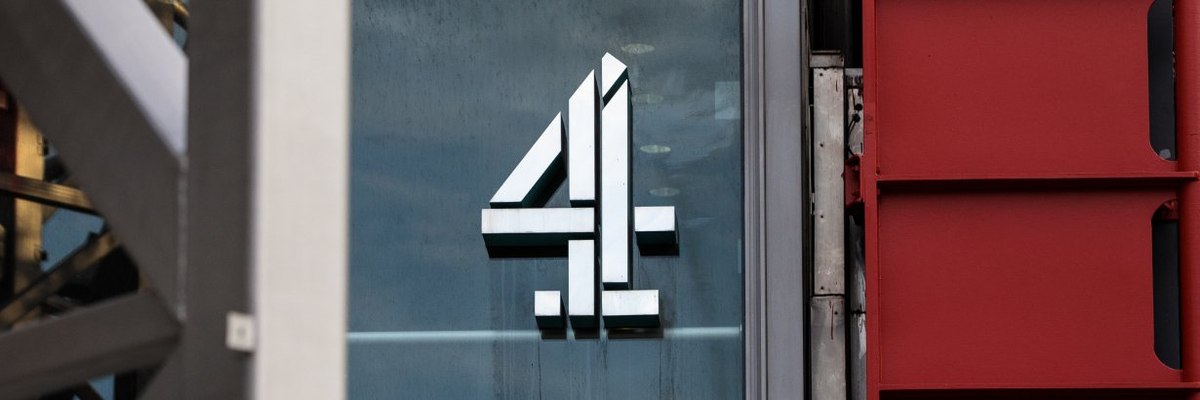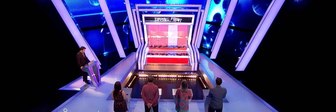There is at least one old adage that seems to have stood the test of time: if it ain’t broke... why fix it? Over the past week It’s been trotted out by many in the world of broadcasting. Forty years ago a new TV channel, Channel Four, hit the airwaves. Many believe it has proved a great success. But things are about to change. The government has just announced that it is about to be privatised. Sold to the highest bidder. Hence the question. Why, if it ain’t broke, does it need fixing? Where do you stand? Is it broke or does it really need fixing?
The first thing to understand about Channel 4 is that although it is financed by advertising and commercial partnerships it is not a commercial operation like ITV. It’s not owned by a company but by the state. But unlike the BBC, it gets no cash directly from the viewers and nor does it get a penny from the taxpayer. Its income was more than £1 billion last year. That structure is regarded even by most critics as having been remarkably successful.
Unsurprisingly perhaps, those who work for the channel are outraged at the proposal to sell it off. Kirstie Allsopp, who presents the property show Location, Location, Location, spoke for many when she said: “All sorts of strange and wonderful creatures exist at Channel 4 and are allowed to flourish, It really is an amazing place and it can do that because it isn’t seeking profit.”
The comedian and actor Alan Davies wrote on Twitter that he owed his career to Channel Four because it nurtured talent. He said: “Apart from all the documentary and film makers, most of us in comedy had our first gigs on Channel Four before the BBC hired us. Someone else could definitely have been in Jonathon Creek and probably QI if I hadn’t been on Channel Four first. It’s ours, why sell it?”
The director Asif Kapadia, who won an Oscar for his documentary on Amy Winehouse, said Channel Four had been pivotal in promoting British culture and without it he would have struggled to garner interest in his early work. He suggested a political motive lay behind the decision. “Boris Johnson and his Tory government are selling off C4 because they hate what it does: “Tories are attacking democracy, culture, art and anyone who dares to hold them to account like Channel Four News.”
Many senior Conservatives have serious reservations too. They include the former foreign secretary Jeremy Hunt and the Father of the House Sir Peter Bottomley. Alice Thomson, one of the leading columnists at the Times, articulated many of their concerns. She called the channel “one of the most bonkers, brilliant and unexpected inventions from a Conservative government. It hardly fit its 1980s governing philosophy, except that it cost the taxpayer nothing and filled a gap in the market. Here was a channel that embraced and explored sexuality, alternative comedy, race, religion and disability.
“Thatcher would be even more shocked by some of its output now, but then she inadvertently created a powerful diversity tool... Over the past four decades it has championed the Paralympics, aired Black on Black, the first show for a British Afro-Caribbean audience, and most recently explored the Aids epidemic in It's a Sin, which is up for 11 awards at this year's TV Baftas and was rejected by every other channel or streaming service. It also caters to Middle England with Location,
Location, Location; Grand Designs; The Great British Bake Off and programmes on archaeological digs.... It has helped create and sustain an independent UK television and film production industry. It nurtures new writers, comedians and crews, supports 10,000 jobs and recorded revenues of £1 billion last year.”
Thomson notes that there has been “no public demand for selling off Channel 4, no petitions against it, no placards, no reported murmurings on the doorstep before the local elections about being forced to watch its advertisements. Most people are more worried about petrol price rises, NHS waiting lists, catching Covid again and Ukrainian refugees. Maybe Boris Johnson wanted an eye-catching announcement to deflect from the No 10 party fines.”
That may or may not be true, but Channel 4 has gained enemies as well as friends, most of them on the right, who claim the channel is biased towards the left. Arron Banks, once one of the largest donors to the UK Independence Party, tweeted: "We are engaged in a culture war ... It needs a bullet in the back of the head pronto!"
Another critic is John Mair, a journalist and broadcaster who has worked over the years for the BBC, ITV and Channel Four. In a scathing article for the Daily Mail he wrote: “Once the nation's cutting-edge broadcaster, capable of provoking scandal and outrage on an almost nightly basis, it is now the home of flaccid dating shows and endless property makeovers. I'm a television addict, eager for the sort of current affairs journalism and genre-busting entertainment that C4 used to pioneer. But these days, I tune in chiefly for Gogglebox and the news at 7pm and I switch off C4 News halfway through after the main headlines, because the second half of that hour has become a service for social workers, a sort of Guardian of the airwaves. It's a sad business. The channel's demise is entirely the fault of its own overpaid executives, who have become smug and lazy commissioning endless re-treads of any series that wasn't an outright failure, such as First Dates or Location, Location, Location.”
Mair makes the point that when Channel 4 launched in 1982, it shook up the “staid world of television in ways that seemed positively shocking.” Brookside was a “million miles from the homely heartaches of Coronation Street.... where the teenagers swore the way teenagers really do... Its storylines revolved around unemployment and middle-class drug abuse. The characters drank, and were sometimes violent. They had sex! Even gay sex.”
The channel’s remit, he notes, was to challenge the BBC with new content funded not by the licence fee but by advertising and the irony was that it all happened on a channel given the go-ahead by Mrs Thatcher and her deputy, William Whitelaw. “Sex was one of C4's major selling points. Films and dramas with graphic nudity were advertised in the schedules with a red triangle beside the title - supposedly a warning to viewers of a prudish nature, but really a promise of juicy bits in an age before internet porn.”
But, as Mair reflects, society has changed. “These days the channel still tries to push the bar on sex, but shows such as Naked Attraction are desperate fare.” He does concede, though, that it has been a hit with the audience. But he is not impressed with the latest offering in the genre. It’s called Open House: The Great Sex Experiment in which, says C4, “committed couples come to a luxury retreat to test whether opening up their relationships and having sex with other people will strengthen their bond”. Mair calls it the sort of unimaginative output that is “sadly typical of the channel in the past decade.”
For at least ten years, says Mair, “the spectacle of a failing Channel 4 has been reminiscent of a David Attenborough documentary. The ailing wildebeest has limped along, trying to hide its weakness, and the fact that it has long been unable to lead the herd. Governments have been snapping at their heels. Now Boris the Lion has pounced. Who gets to devour the carcass, we shall have to wait and see.”
As for the government, the health secretary Sajid Javid says privatisation would liberate the channel and make it more competitive. He told LBC: “I love Channel 4. I think it's great but I want a Channel 4 that can compete in a fast-changing landscape. To compete properly it needs to be able to raise its own funds and capital. To do that in a way that it can properly compete in a vastly changing media landscape. This will set Channel 4 free.”
What’s your view? Do you “love” Channel 4 or do you believe that its best days are behind it? Either way, is there a case for privatising it? If there is, who do you think should take it over? Or, in this brave new media world of massively rich streaming channels, maybe you think “mainstream” television like Channel Four or even the BBC and ITV have had their day.
Do let us know.










